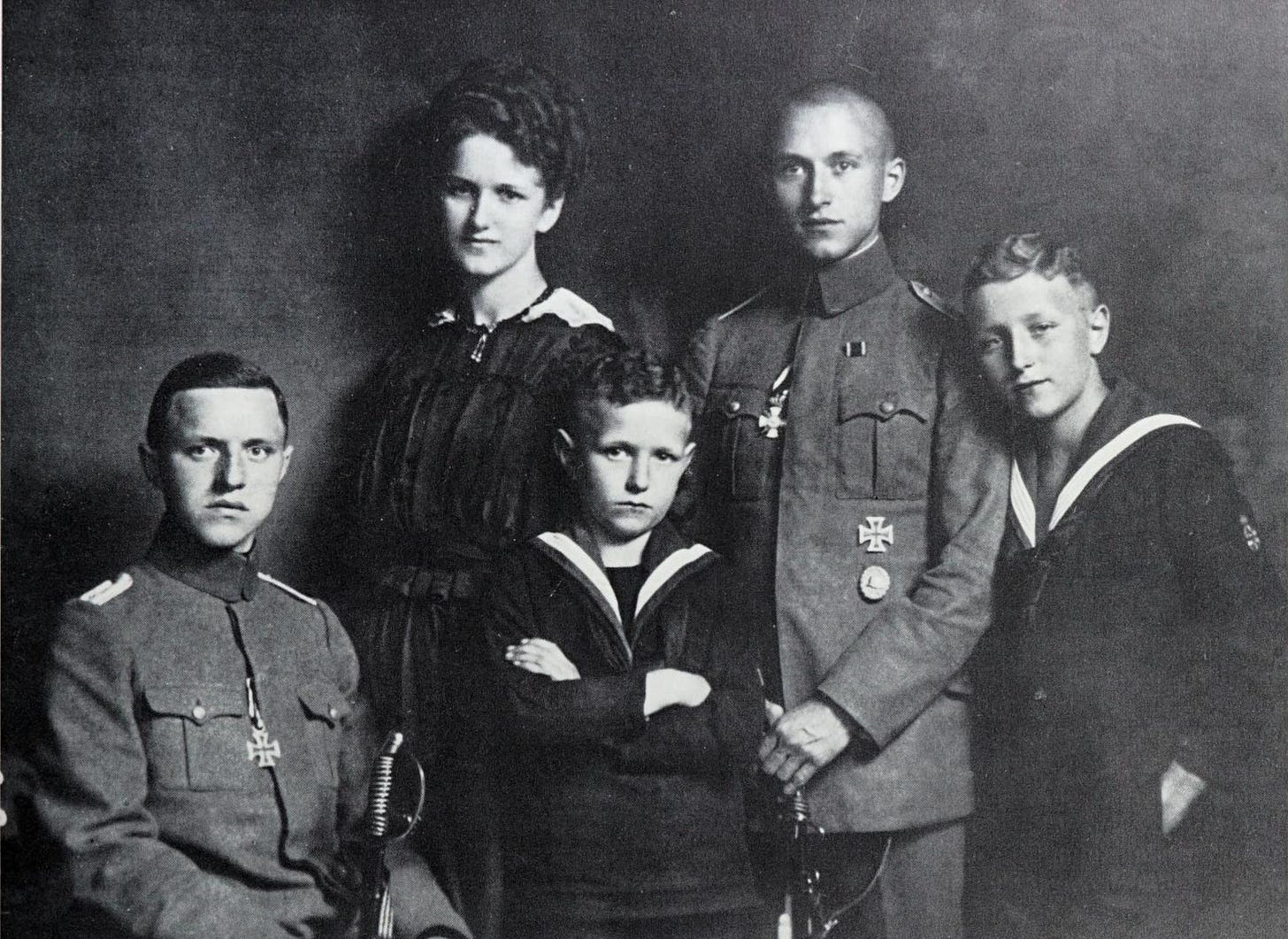The Evening Chronicle
29. November 1929
"I consider that my books are a part of Germany’s moral and intellectual armament for the next war."
"I do not believe that the next war will come soon and would consider such an event particularly unfavourable to Germany."
"But I am of opinion that war is necessary. It is nothing but a continuation of politics by different means. I am a disciple of Nietzsche, and take the greatest delight in a struggle for power wherever it occurs and whoever wins."Herr Jünger summarized his philosophical beliefs by saying that he thought a man was of little value; that a man should be sacrificed for great ends; and that a man might attain supreme value if he sacrificed himself voluntarily.
Referring to Herr Erich Maria Remarque, the author of "All Quiet on the Western Front", Jünger declared he appreciated that "All Quiet" was a "camouflage" in that it created the opinion that Germany was dominated by internationalism and pacifism.
"My book, however, was written to make it clear that we combatants are not so awfully unhappy" he said.
He expressed his belief that his feeling that wartime life was "heroic" was not restricted to Germany but was shared by many ex-enemies from whom he had frequently received letters.
His correspondents were particularly numerous among the former members of Scottish regiments whom he encountered during the great German offensive of March, 1918.
This was the fiercest fighting Herr Jünger experienced.
Asked if he found the English good and brave soldiers, Herr Jünger replied: "From my experience in many encounters with the English I gained the impression that they were brave soldiers and as enemies they were gentlemen. We were on quite good terms during the calm periods between the battles."
He added that comrades of his who had been taken prisoners by the British troops were entirely satisfied at the treatment that they received.
"Do you still feel that the Germans were justified in giving no quarter in the Great Offensive when hundreds of Englishmen, advancing with their arms held high were shot down", the interviewer asked the author.
Herr Jünger replied that he condemned such action and said he would not have been guilty of this act himself.
"But", he added, "you must consider that after the ordeal of advancing through enemy fire for a long time very few men were able to feel and act like human beings."
After the war Herr Jünger served as an officer in the German Reichswehr and assisted in framing the new regulations for the infantry.
He then retired from the Army and studied philosophy and zoology, working for a time at the Zoological Station at Naples.




